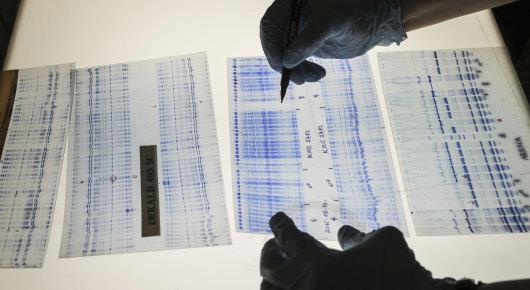Detecting GMOs is focus of FAO training event in Baku

Learning how to detect genetically modified organisms in food crops was the focus of a recent FAO training event here.
FAO’s Partnership and Liaison Office in Azerbaijan arranged the regional training course on GMO detection, identification, quantification, and laboratory accreditation according to ISO 17025 – as part of a larger FAO project to develop national and regional capacities in the area of biosafety.
More than 40 participants – specialists from Azerbaijan, Kazakhstan, Kyrgyzstan and Tajikistan – took part in the training, which took place from 16 to 20 October on the premises of the Genetic Resources Institute of Azerbaijan’s National Academy of Sciences. International expert on GMO detection Tzveta Georgieva led the course, assisted by Azeri GMO expert Mehraj Abbassov. A technical visit to the State Phytosanitary Control Service laboratories was included as part of the training.
The four participating countries are finalizing their regulatory frameworks on biosafety – intended to maximize benefits for men and women farmers, and minimize risks of GM technologies to biodiversity and human health while also ensuring consumer choice in foods. To enforce those frameworks, the countries require knowledge, experience and equipment.
Effective control of seed and food imports is part of national legislative enforcement, and can help prevent unauthorized GMOs – not yet assessed locally for risk to health and the environment – from penetrating the food chain. Import controls are also important for food labeling.
Importance for trade
For organic production, authorized GMOs detected over the threshold of 0.9 percent could threaten marketing opportunities to the European Union, the Russian Federation and the Eurasian Economic Union.
During the closing ceremony, Zeynal Akparov, Director of the Genetic Resources Institute, thanked FAO for its efforts and stressed the importance of cooperation between the institutions.
FAO agricultural officer Nevena Alexandrova-Stefanova, who provides technical backstopping to the project, noted that the trainees now are expected to disseminate and apply the newly acquired knowledge in their home countries.
In addressing the group, FAO plant protection and production officer Hafiz Muminjanov emphasized the importance of such training events for agriculture in the Europe and Central Asia region.
“Capacity development in Biosafety” is an FAO project implemented in close collaboration with Ministries of agriculture, Ministries of environment, and the Cartagena Protocol focal points of Azerbaijan, Kazakhstan, Kyrgyzstan and Tajikistan.
27 October 2017 Baku, Azerbaijan
